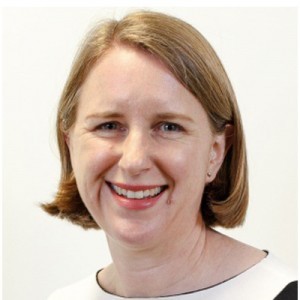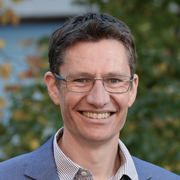The Doherty Institute was commissioned by the Commonwealth Government to advise on the National Plan to transition Australia's National COVID Response.
Modelling for public health is an iterative process that provides measured advice to policy makers.
The Doherty Institute provides the evidence in an unbiased way – we do not make the policy decisions. It is the role of the Commonwealth Government to interpret the evidence.
We have put together this information hub to provide more insight into what modelling is, introduce our team of modellers and provide explanations around the reports we have produced for National Cabinet.
Here you will be able to find everything from the reports we have prepared for National Cabinet, to explainer videos, podcasts and articles.
What is modelling?
Modelling is a process in which real-life or hypothetical situations or scenarios are translated into mathematical language. This is done by first identifying a problem (for example, a disease outbreak) and asking a question (for example, how might certain restrictions change how the disease spreads?). The team then collects different types of data from different sources to inform their model, including statistical data, mobility data and demographic data. The modellers consult experts to gather more nuanced information about the problem. Modellers then identify the best type of model to use that will help them answer the questions they have asked. The modellers look at different scenarios based on the data they have collected, and the advice they have received on the problem.
These situations are analysed using well-defined rules and are guided by particular objectives. The model will produce outputs, which can then be analysed, adjusted and interpreted. Ultimately, models construct a theoretical representation of real-world situations.
There are different types of models which range in complexity. The type of model used will vary depending on the objectives and purpose of the study, the amount and quality of data available, and what is understood about the epidemiology of the disease.
Although the Doherty-led consortium focuses on epidemiological modelling and modelling of infectious diseases, modelling in general has a wide variety of applications across many different sectors, including finance, policy making, engineering, economics and technology.
Doherty Institute Modelling Reports
- Doherty Modelling Final Report to National Cabinet - 5 November 2021
- Final Report - Attachment A_Work Package 1_TTIQ
- Final Report - Attachment B_Technical Appendix
- Final Report - Attachment B_Work Package 2_First Nations
- Final Report - Attachment C_Work Package 2_ LGA substream
- Final Report - Attachment D_Work Package 2_Schools
- Final Report - Attachment E_Work Package 3_Borders
- Final Report - Attachment F_Parameter Updates
- Doherty Modelling Progress Report - Presentation for National Cabinet
- Doherty Modelling Interim Report to National Cabinet - 17 September 2021
- Doherty Modelling Report for National Cabinet - Revised - 10 August 2021
Lay statements
- Statement on the Doherty Institute modelling sensitivity analysis
- Satement on the Doherty Institute Modelling Report for National Cabinet
- Statement on the Doherty Institute modelling sensitivity analysis
- Statement on the Doherty Institute modelling - final report to National Cabinet
Each of the Work Packages are broken down in detailed lay summarys below
Modelling definitions and FAQs
Read this document for an explainer on commonly used modelling definitions and frequently asked questions.
Articles
Podcasts
Press conferences
- Monday, 8 November - Final Report to National Cabinet
- Monday, 20 September 2021
- Tuesday, 3 August 2021 - Doherty Institute Modelling Report for National Cabinet
The team
Our process, led by the Doherty Institute’s Director of Epidemiology, University of Melbourne Professor Jodie McVernon, and University of Melbourne Professor James McCaw, involves collaborative work conducted by multiple teams with specific expertise in infectious diseases modelling across 12 institutes and universities from around Australia.
This nationally distributed team has been actively engaged in supporting decision making at Commonwealth level through Australia’s COVID-19 response including ongoing assessment of the nature of our local epidemic.
Project Directors
Researchers/Collaborators
Burnet Institute
Doherty Institute
LaTrobe University
- Dr Rebecca Chisholm, Lecturer in Mathematics and Statistics
- Dr Joel Miller, Senior Lecturer, Applied Mathematics
Monash University
Murdoch Children's Research Institute
- Professor Fiona Russell, Group Leader and Senior Principal Research Fellow
- Associate Professor Margie Danchin, Group Leader / Honorary Fellow Manager in Infection and Immunity & Consultant Paediatrician
- Professor Sharon Goldfeld, Paediatrician, Public Health Physician, Theme Director Population Health and Co-Group Leader of Policy and Equity
Telethon Kids Institute
- Professor Nick Golding, Professor in Population Health
- Dr Nick Tierney, Research Software Engineer
- Dr Gerry Ryan, Research Fellow
- Dr David Duncan, Research Fellow
- Tainxiao (August) Hao, Research Fellow
The University of Melbourne
- Dr Freya Shearer, Senior Research Fellow - Epidemic Decision Support, Melbourne School of Population and Global Health
- Nefel Tellioglu, PhD Candidate, School of Computing and Information Systems
- Associate Professor Nic Geard, Associate Professor in Computing and Information Systems, School of Computing and Information Systems
- Dr Cameron Zachreson, Postdoctoral Research Associate, School of Computing and Information Systems
- Dr Chris Baker, Research Fellow - Statistics For Biosecurity Risk, School of Mathematics and Statistics
- Dr Camelia Walker, Research Fellow in Mathematics and Statistics, School of Mathematics and Statistics
University of Adelaide
University of New South Wales
University of Sydney
Walter and Eliza Hall Institute for Medical Research
Project Implementation Team
- Laura Bannerman, Project Coordinator, Modelling, Doherty Institute
- Olivia McIntyre, Project Manager, Global Health, Doherty Institute




